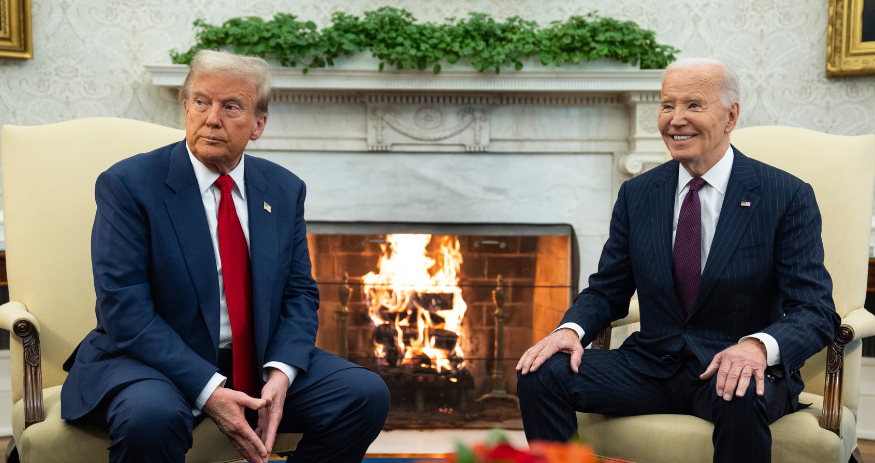The way out of our hyperbolic election cycle
Previously Published on Arizona Capitol Times
Since Donald Trump’s first election, American politics have shifted swiftly and disorientingly, amplifying divides and intensifying reactions to outcomes that, not so long ago, would have been met with acceptance and a resolve to do better next time. As someone who didn’t support Trump in either of his campaigns, I was devastated when he won in 2016. By 2024, however, I was less surprised. Pollsters had been predicting a razor-thin race, so I was braced for anything. My real dismay came as I witnessed the post-election reactions of young people in my life. Their messages reflected a profound sense of loss. They felt the stakes were existential – that democracy itself was at risk.
My response was to assure them it would be OK – and I believe it will be. But I also had to ask myself how we reached this point. How did elections come to feel like make-or-break moments for our democracy? Certainly, elections have always mattered, but with the rise of social media and 24/7 news, the stakes now seem to carry the weight of our collective future, leaving little room for resilience. Every victory or loss feels like an irreversible step toward progress or destruction.
Reflecting on this, I’ve had to confront my own role in creating a hyperbolic, binary view of politics – a mindset where one side supposedly holds all the answers, while the other will inevitably lead America to ruin. I bought into the idea that each election’s stakes were apocalyptic, and in doing so, I became part of the echo chamber fueling this divisive rhetoric. I was wrong. Real progress doesn’t come from seeing the world in black and white; it thrives in spaces where nuance and diverse perspectives are valued.
We’ve seen this in action with legislation like Trump’s First Step Act and Biden’s Infrastructure Deal – policies that brought together leaders across the political spectrum to achieve meaningful change. These examples remind us that the best ideas emerge not from one side but from collaborative and open dialogue across ideologies.
The amplification of every political event, real or rumored, keeps people in a perpetual state of political anxiety, unable to find stability or hope between election cycles. This mounting tension reached a breaking point on January 6, 2021, in a violent insurrection at the U.S. Capitol, fueled by misinformation and denial of the 2020 election results. Yet, as each new election approaches, I worry we haven’t learned our lesson – that we’re still trapped in this cycle, vulnerable to the same divisive forces.
Observing young people navigate this politically charged landscape, I empathize with their burden. They’ve come of age in an era where every vote and outcome feels like it could signal the beginning or end of something monumental. This anxiety is almost unavoidable in the digital age, where the two-party system thrives on division and campaigns heighten existential threats to mobilize support. Coupled with the relentless news cycle, these strategies intensify pressure on voters, making it increasingly difficult to maintain hope and resilience between elections.
When we approach each election as a last chance or a final hope, we strip away the possibility of resilience, recovery, and growth from within. Our democracy was built to withstand losses and victories, and it is on all of us – left, right, and center – to ensure we pass on that belief to future generations. The best way to move forward is to restore hope that each election is not a fatal blow or an irrevocable triumph but a part of our ongoing, resilient, democratic story.
Breaking this cycle won’t be easy. It calls for introspection and meaningful action. But if we’re willing, real change is possible. First, we must rethink how we see the “other side.” These aren’t just faceless opponents in a political game – they’re friends, family, colleagues – people we care about and respect in ways beyond politics. Whether we agree with them or not, their voices and values matter as much as ours.
Second, real engagement begins when we move past the empty noise of social media and choose action over argument. Voting is essential – especially in local elections, where the most immediate decisions about our lives are made, yet turnout is alarmingly low. Beyond that, we can support causes that align with our values by donating, volunteering, or joining advocacy efforts that create lasting change. Because when we invest in what matters, we find a purpose that brings perspective, reminds us of our impact, and restores the hope we need to build a stronger, more resilient democracy.


